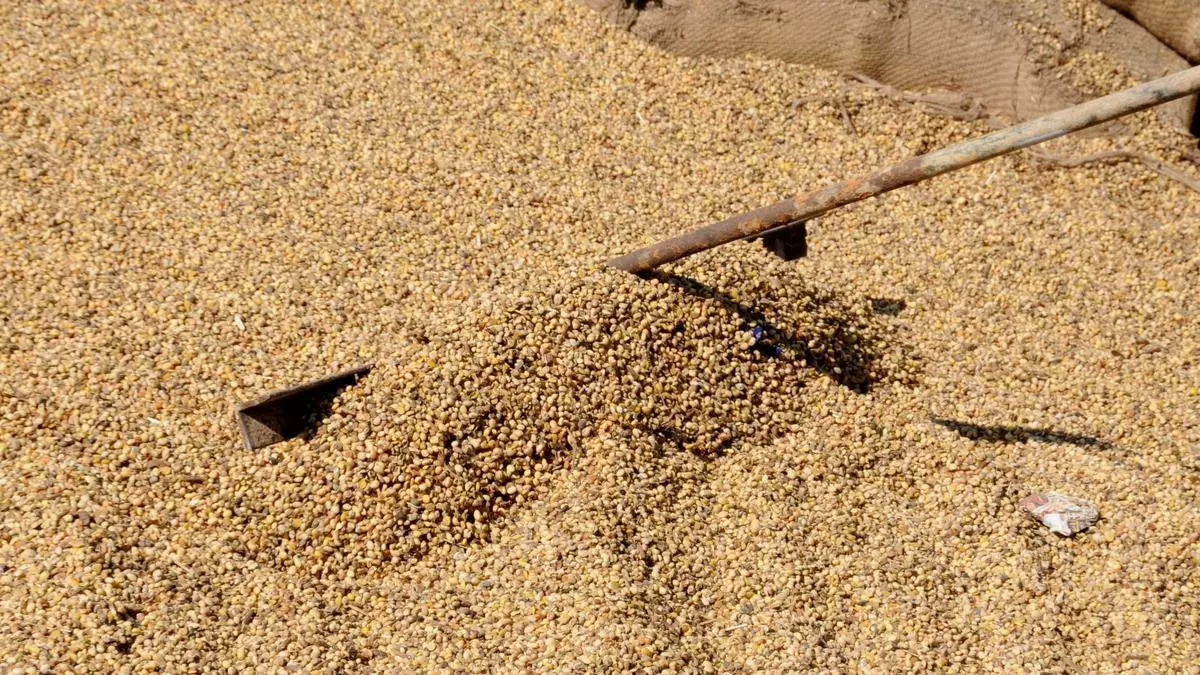Corteva leads private sector to popularise DSR system in rice planting
Corteva Agriscience has a business model in promoting the much talked Direct Seeded Rice (DSR) planting technique, which never received mass adoption despite having the answer to save depleting ground water table of Punjab, Haryana and other states.
As the DSR system helps farmers save around 30 per cent water in paddy crop the private sector participation is seen as a game changer as its promotion was so far limited to some government incentives under certain scheme.
Sensing a business opportunity, Corteva, having presence in both seeds and agrochemicals, has taken a lead on DSR as farmers have to buy hybrid seeds every year and also need to use a tad higher agrochemicals. Further, the herbicides to be used need to be some specific products so that the rice plants remain unaffected when sprayed to kill the weeds.
Farmers like Jaskaran Singh Walia of Kotbhai village of Muktsar district of Punjab is one such farmer who has been using DSR method in 5 acres of his 20 acres paddy/Basmati area this year and hopes to increase the area under it next year.
“In DSR there is a saving of around ₹15,000/acre. Though I started it 3 years back, the herbicides available earlier was affecting the paddy plants when sprayed to kill weeds. But, now that these chemicals are said to be effective, I will see the results this year and will increase the area next year,” Walia said.
Asked why is he not taking up DSR in all the 13 acres of paddy he is growing, Walia said: “DSR is good since in the conventional transplanting system there is need of manual labour and availability of it is a problem. But it is also a risk particularly when temperature is very high.”
Some farmers said that there is also economics involved in it. “For DSR, we need hybrid and will have to spend around ₹1800-2000 per acre to buy seeds. Whereas in case of PR varieties (released by Punjab Agriculture University), we use our own seeds saved from previous crop. The paddy from hybrid seeds has to have either higher yield from PR or its prices should be more than MSP,” said another farmer of Kotbhai village.
But, there are some villages where all the farmers have opted for DSR as the water is saline, according to Daljit Singh, another farmer of Muktsar. “The benefit of hybrid is that it can yield 25-26 quintal per acre even where the water quality is not good or even availability is an issue,” said Navdeep Walia and added that the normal paddy varieties of PAU can have 26-28 quintal per acre productivity in best conditions.
Out of about 46 million hectares of area under rice in the country, 10-12 per cent is under DSR, which also includes the area where farmers traditionally use broadcasting, said Subroto Geed, president of the company’s south Asian region. He said the potential to increase the area under DSR is huge as it is the way forward for sustainable agriculture.
Traditional rice cultivation methods in India require extensive labour and massive water resources, involving sowing seedlings into puddled fields and flooding them to control weeds, a company spokesperson said. But, Raman Babu, head of Seeds R&D in Corteva’s south Asia operation, elaborated further and added that DSR is an innovation of farmers.
Babu said that flooded water in rice field in the conventional transplanting system, emits methane gas into the air, which is considered a major pollutant to environment.
Besides, farmers can get extra 10-12 days between paddy harvest and wheat sowing as DSR helps cut the duration of rice crop, potentially curbing stubble burning incidents.
He admitted that weed management is a major challenge in DSR, which can be solved by one application of herbicide at pre-emergence and another at post-emergence in 2-4 weeks gap. There are more innovations coming up like the latest one on herbicide tolerant (HT) rice varieties, Babu added.
“DSR has been advocated for at least 3 decades now. How much progress made so far is everyone to see as it was not pushed the way it should have been.
Besides, both DSR on one hand and free power and free water cannot go hand-in-hand. It is good that private sector has chipped in. If it is profitable for farmers, for companies, it should be allowed to succeed with suitable policy interventions,” said a leading agriculture economist.
(The correspondent was in Punjab recently at the invitation of Corteva Agriscience)
